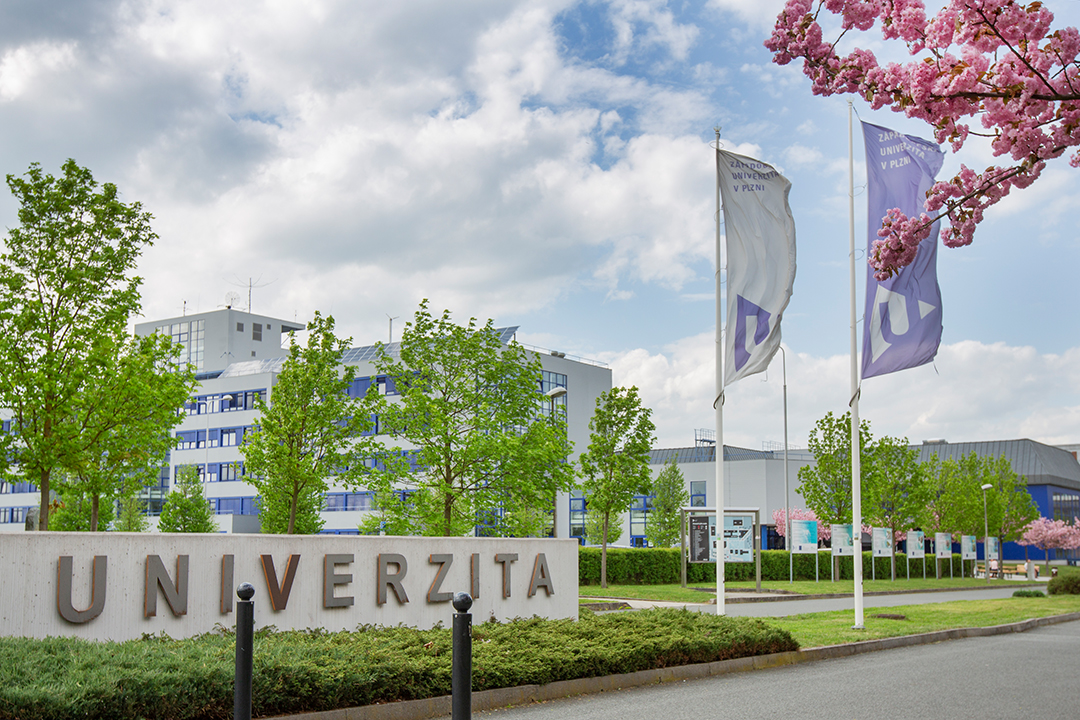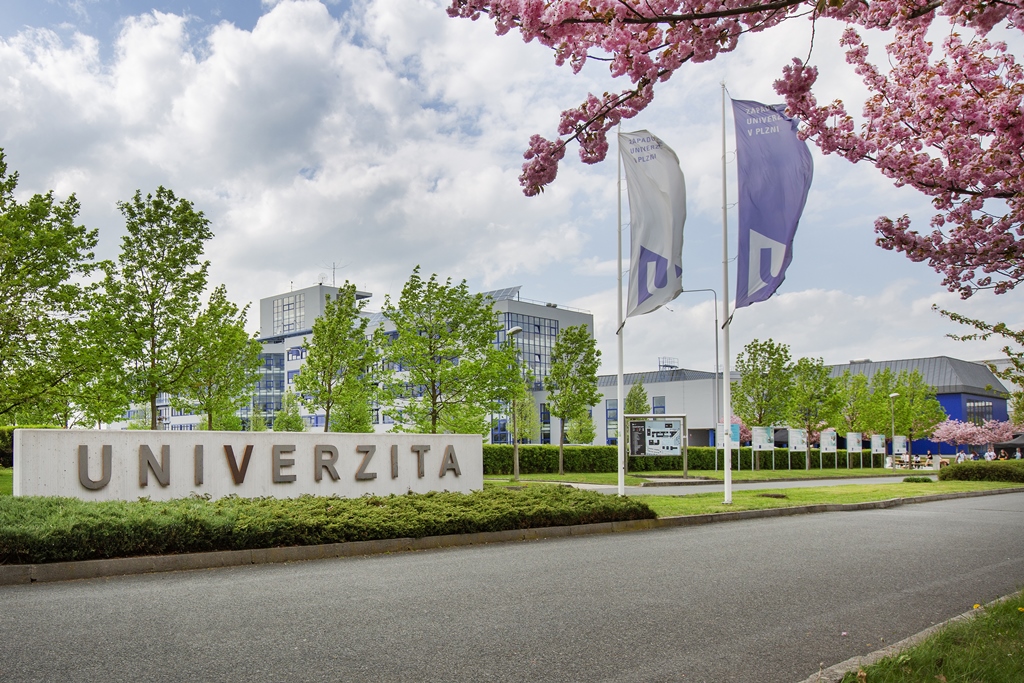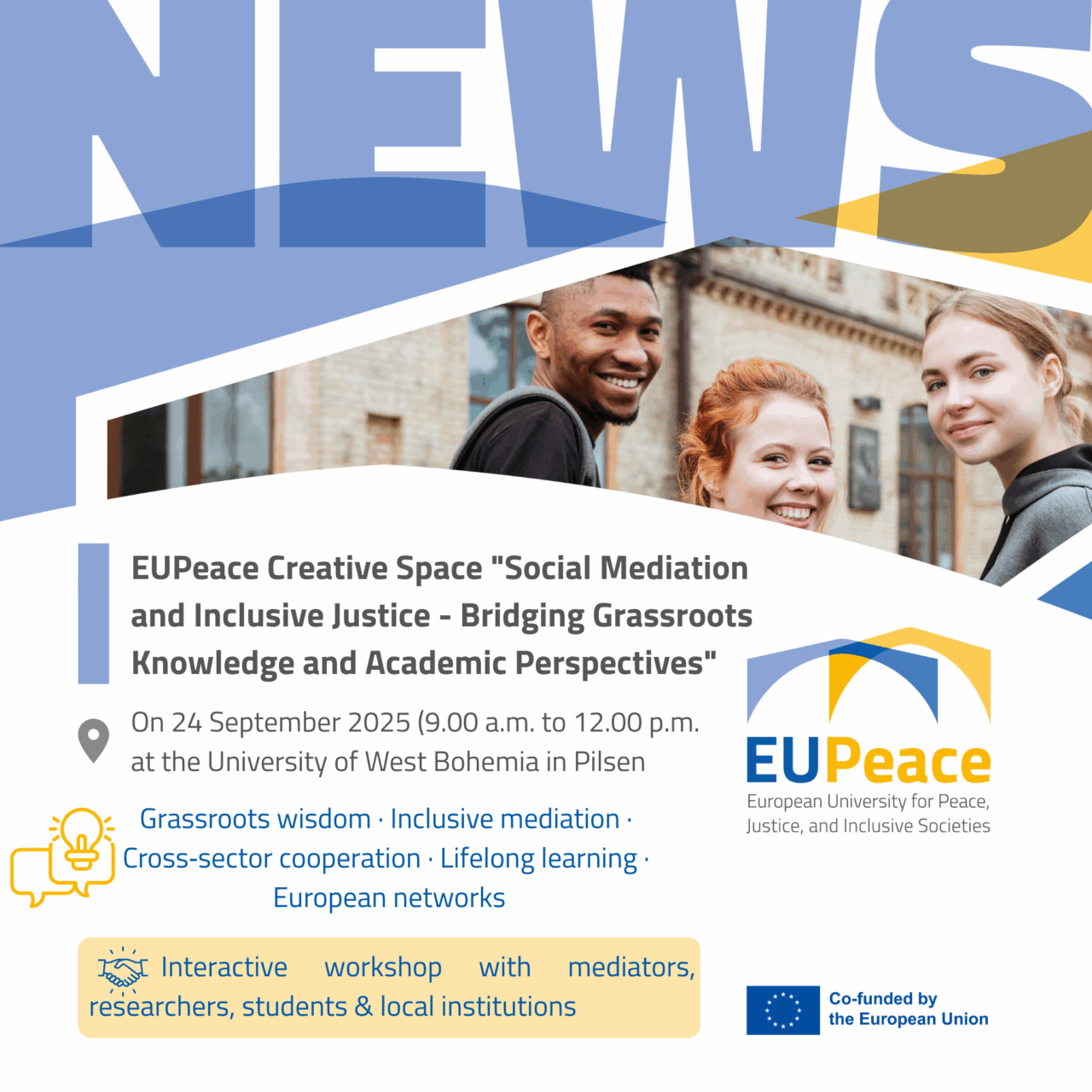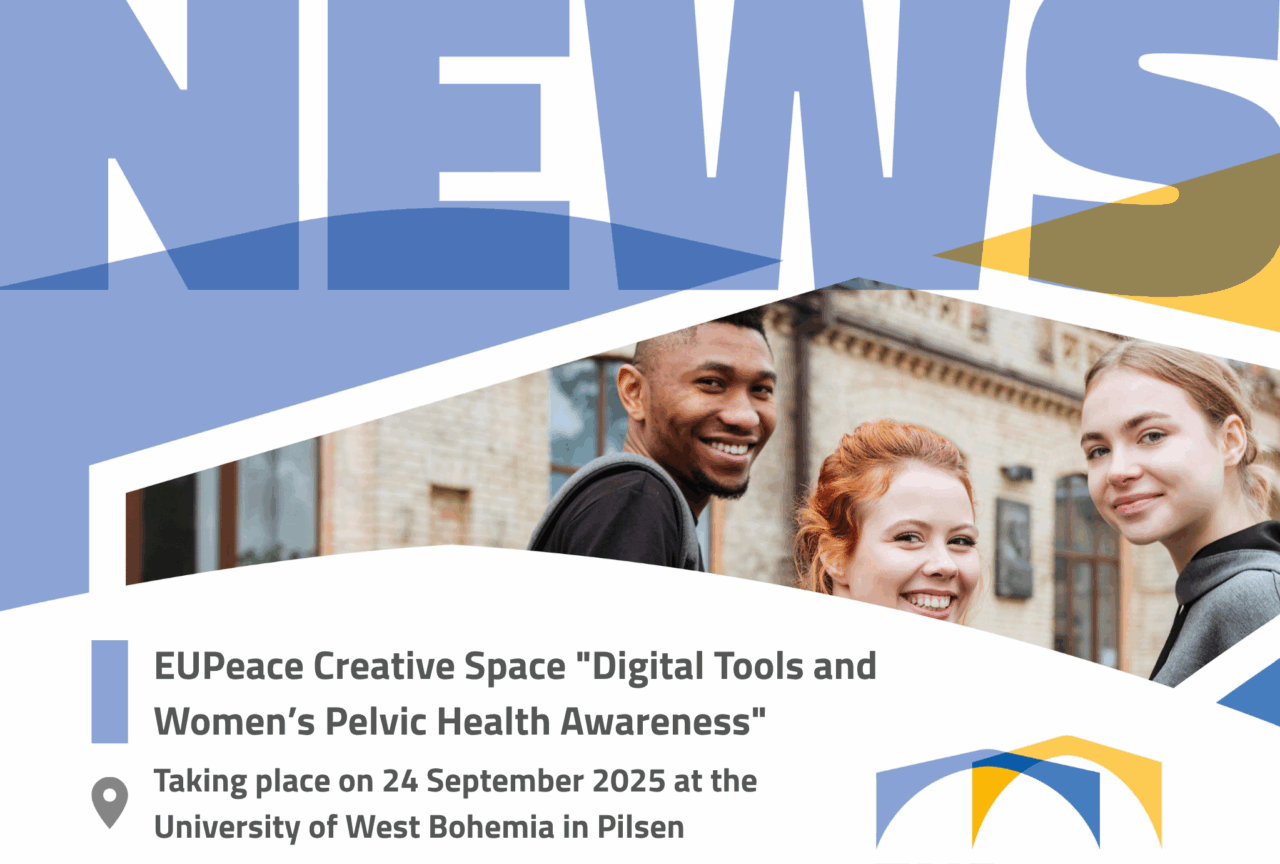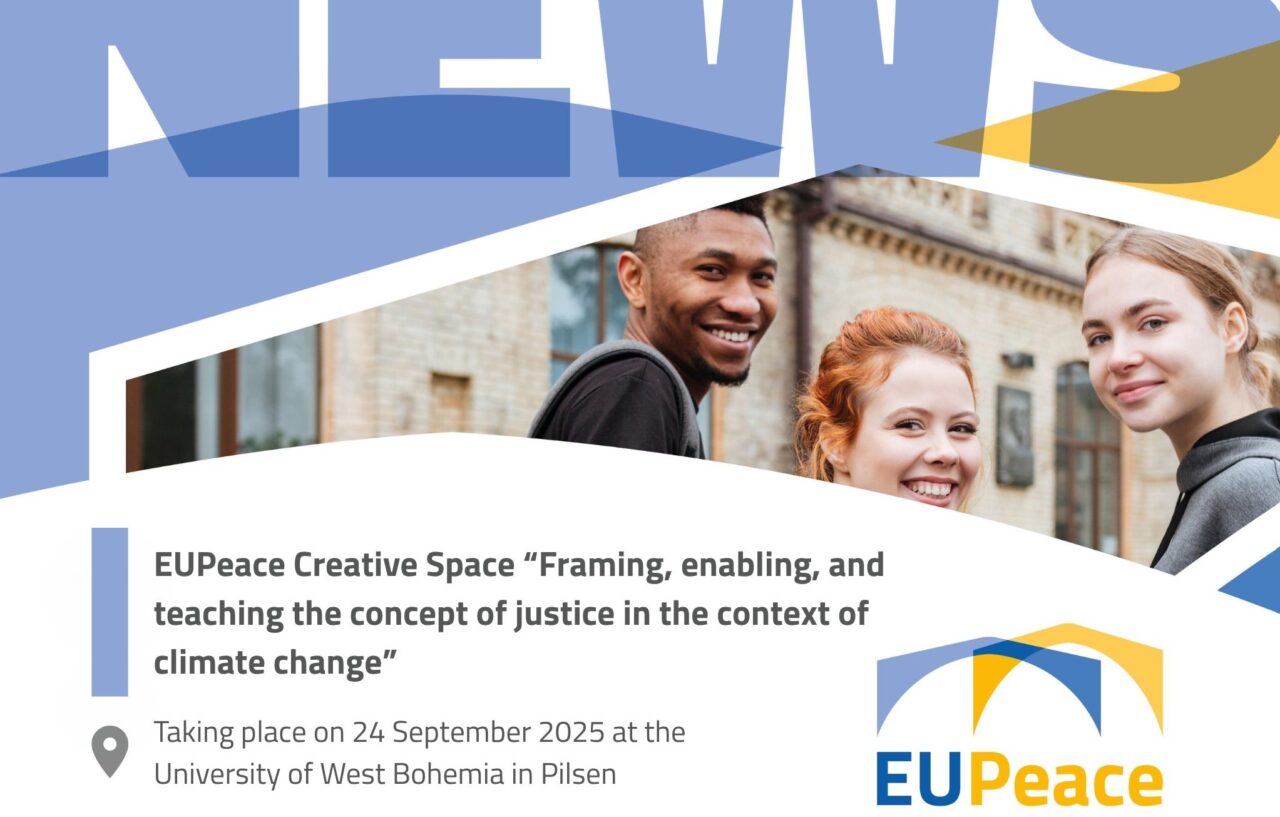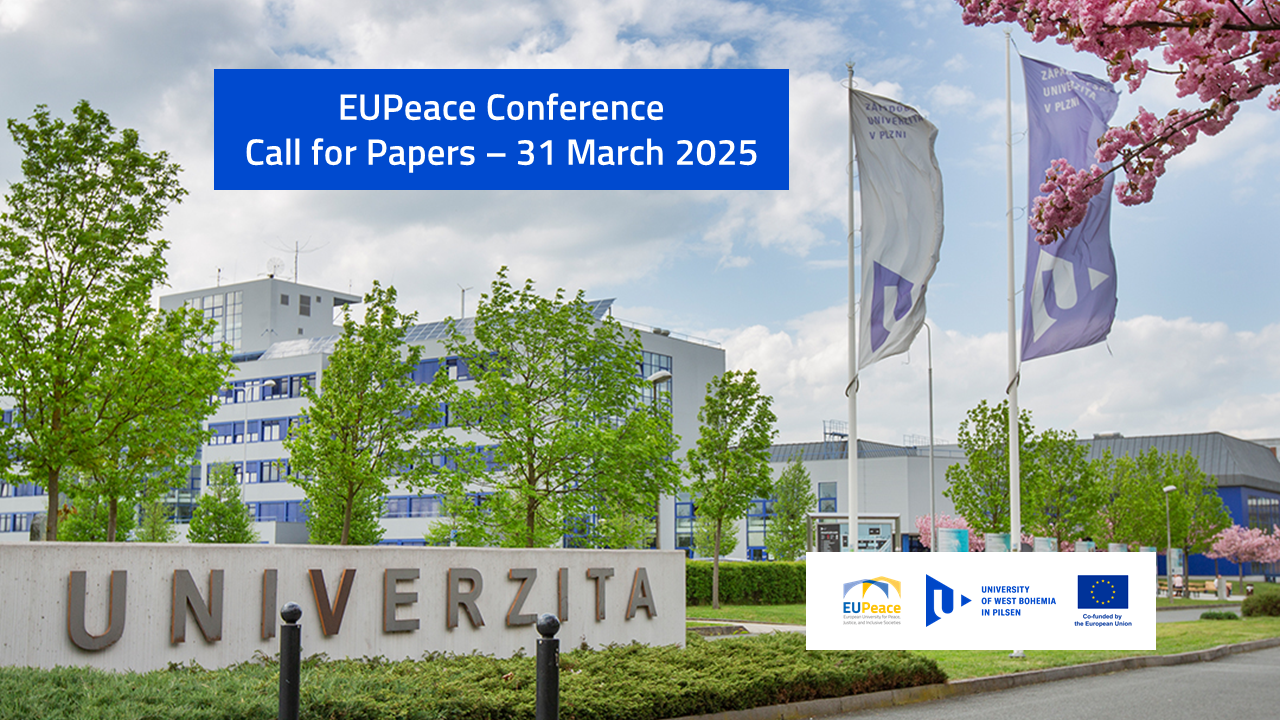Key Themes & Research Hubs
The conference is organised around the four thematic EUPeace Research Hubs:
Sessions will explore both technological and societal transformations through keynote lectures, expert panels, interactive workshops, and artistic formats. The conference is structured as follows:
- Monday, 22.09.2025, Joint Conference Program on “Advancing Justice, Peace and Inclusiveness in Times of AI”, Venue: Parkhotel Pilsen
- Tuesday, 23.09.2025, Parallel Conference Program of the EUPeace Research Hubs, Venue: Parkhotel Pilsen
- Wednesday, 24.09.2025, Parallel EUPeace Creative Spaces, Venue: University of West Bohemia in Pilsen
Further information
You can also join us online:
22 September – Main Conference Day
📺YouTube – AVSZCU Streams
23 September – Research Hubs (09:00, Prague/Bratislava time)
HUB 1: Zoom link | ID: 933 5806 6913 | Passcode: 659606
HUB 2: Zoom link | ID: 920 3455 2677 | Passcode: 734569
HUB 3: Zoom link | ID: 946 4536 1739 | Passcode: 080181
HUB 4: Zoom link | ID: 926 9369 0597 | Passcode: 458614
Call
Contact

Programme
DAY 1: Monday 22 September 2025, Parkhotel Pilsen
10:30 – 11:30 Arrival of the participants
12:00 – 13:00 Common Lunch
13:00 – 13:30 Opening of the conference
13:30 – 14:30 Keynote presentation
- Lukáš Benzl: Application of AI tools and approaches in the Czech Republic in the context of Europe (President of CAAI)
- Miloslav Konopík: Evolving Intelligence: The Journey of AI at the University of West Bohemia in Pilsen (University of West Bohemia in Pilsen)
14:30 – 15:00 Coffee break
15:00 – 17:00 Plenary session & discussion
- Francesco Scarcello: Working and Learning with Artificial Intelligence in Higher Education (University of Calabria)
- Sophia Hercher: Language about AI and AI literacy – linguistic representations of generative AI and the implications for AI literacy in higher education (Marburg University)
- Pavel Ircing: Inclusive AI at ZČU – how do we make AI beneficial and accessible to different communities (University of West Bohemia in Pilsen)
- Sergio Cuenca: Political Horizon (Comillas Pontifical University)
- Přemysl Rosůlek: Political campaign ethics in the emerging age of ai: towards a code of conduct for the 2025 Czech parliamentary elections (University of West Bohemia in Pilsen)
Evening Common Gala Event at Parkhotel (For conference participants, EUPeace Body members and invited guests of UWB)
DAY 2: Tuesday 23 September 2025, Parkhotel Pilsen
09:00 – 10:30
- Panel 1 – Research Hub Security and Conflict Transformation “Theoretical approaches to Security and Conflict Transformation”
- Panel 2 – Research Hub Climate Science and Just Transition “Governing Climate Change in a Dynamic Political Environment”
- Panel 3 – Research Hub Migration and Human Rights “Navigating Human Rights and Legal Frameworks in Migration”
- Panel 4 – Research Hub Inclusive Health and Well-Being “Digital Technologies for Advancing Inclusive Health”
10:30 – 11:00 Coffee Break
11:00 – 12:30
- Panel 5 – Research Hub Security and Conflict Transformation “Legal and historical approaches to Security and Conflict Transformation”
- Panel 6 – Research Hub Climate Science and Just Transition “Impact of Climate Change on Local Communities: Constraints and Opportunities”
- Panel 7 – Research Hub Migration and Human Rights “Cultural Dynamics, Discourses and Politics of Migration”
- Panel 8 – Research Hub Inclusive Health and Well-Being “Interdisciplinary Approaches to Women´s Health”
12:30 – 13:30 Common Lunch
13:30 – 15:00
- Panel 9 – Research Hub Security and Conflict Transformation “Quantitative approaches to Security and Conflict Transformations”
- Panel 10 – Research Hub Climate Science and Just Transition “Education for Better Climate Change Governance”
- Panel 11 – Research Hub Migration and Human Rights “Technological Transformations in Migration Studies and Narratives”
- Panel 12 – Research Hub Inclusive Health and Well-Being “Cross-Sector Approaches to Inclusive Health and Wellbeing”
15:00 – 15:30 Coffee Break
15:30 – 16:30
- Meeting – Research Hub Security and Conflict Transformation
- Meeting – Research Hub Climate Science and Just Transition
- Panel 13 – Research Hub Migration and Human Rights “Resonances of Displacement: Bodies, Objects, and Critical Thought in Migration”
- Meeting – Research Hub Inclusive Health and Well-Being
16:30 – 17:00 Joint Conference Conclusion
Evening Optional joint dinner (own costs) Tour of the pilsen brewery, Plzeňský Prazdroj
DAY 3: Wednesday 24 September 2025, University of West Bohemia in Pilsen – Univerzitní 2732/8, 301 00 Plzeň 3-Jižní Předměstí
09:00 – 12:00
- Creative Space 1 – “Beyond the Places of Pain”
- Creative Space 2 – “Framing, enabling, and teaching the concept of justice in the context of climate change”
- Creative Space 3 – “Social Mediation and Inclusive Justice: Bridging Grassroots Knowledge and Academic Perspectives in Europe”
- Creative Space 4 – “Digital Tools and Women’s Pelvic Health Awareness”
12:30 – 13:30 Common Lunch
Afternoon Optional campus tour or city tour
EUPeace Creative Spaces
The EUPeace Alliance organises Creative Spaces on 24 September 2025 as an additional programme to the EUPeace Conference. With this activity, the EUPeace Alliance aims at fostering open and transdisciplinary discussions of cutting-edge questions around the topics of peace, justice, and inclusive societies. The four Creative Spaces are described in the Conference Programme and address the following topics:
- Beyond the Places of Pain
- Framing, enabling, and teaching the concept of justice in the context of climate change
- Social Mediation and Inclusive Justice: Bridging Grassroots Knowledge and Academic Perspectives in Europe
- Digital Tools and Women’s Pelvic Health Awareness
Latest news on this event
Practicalities
- Location: Pilsen, Czech Republic
- Main venues: Parkhotel Pilsen & University of West Bohemia in Pilsen
- Dates: 22–24 September 2025
